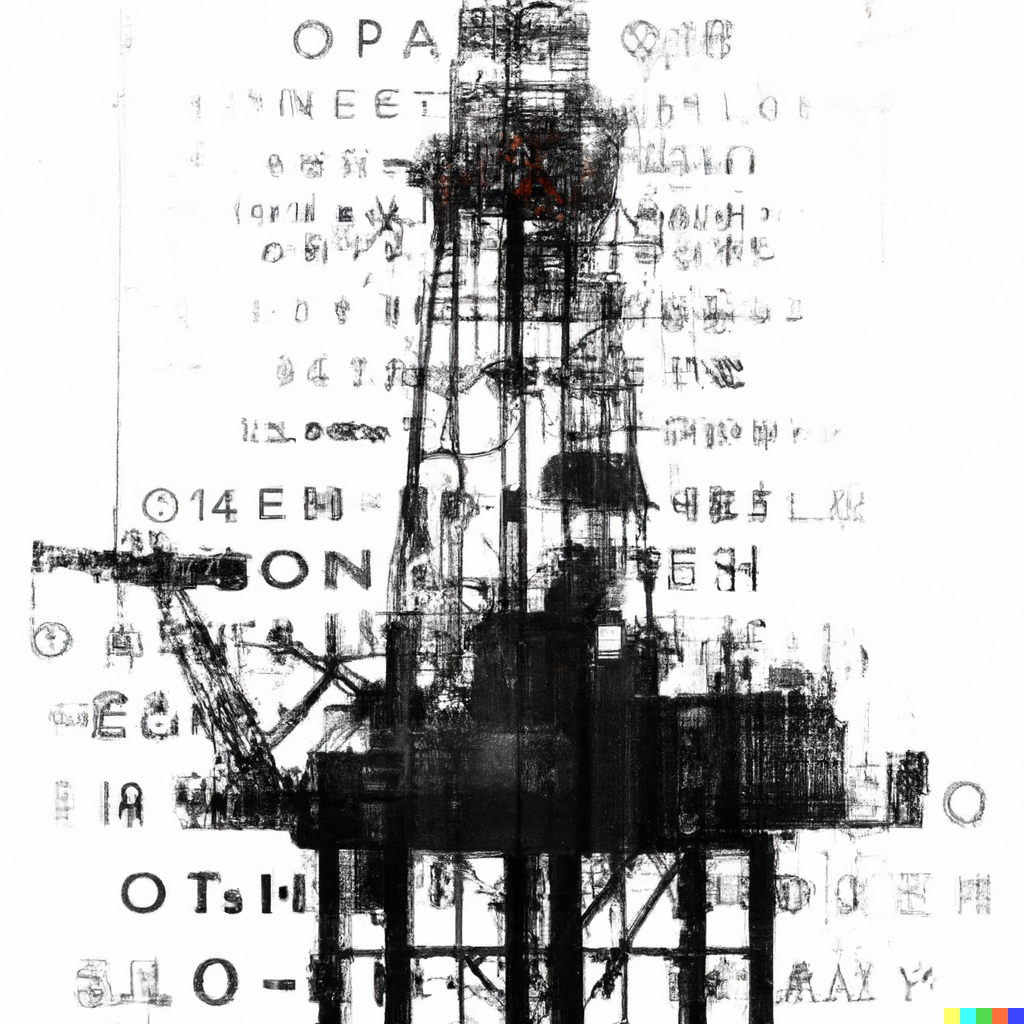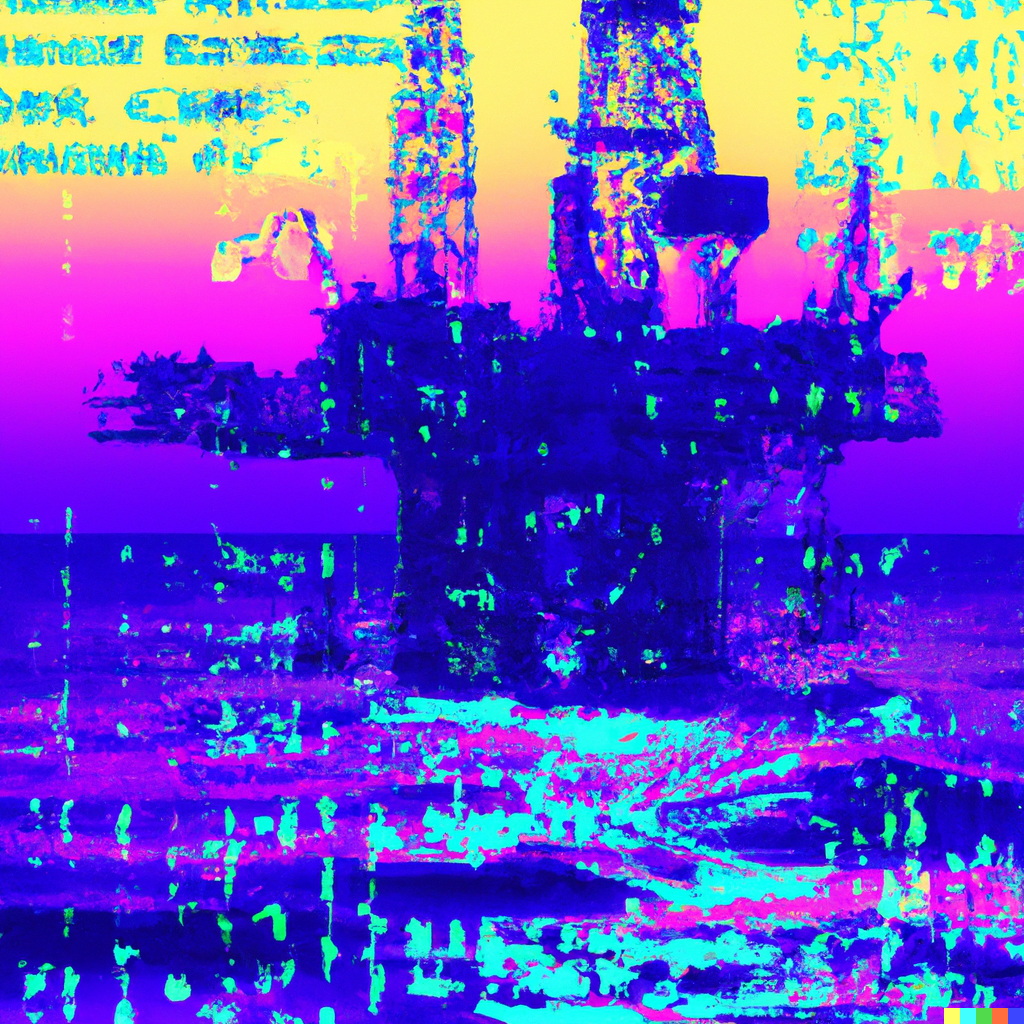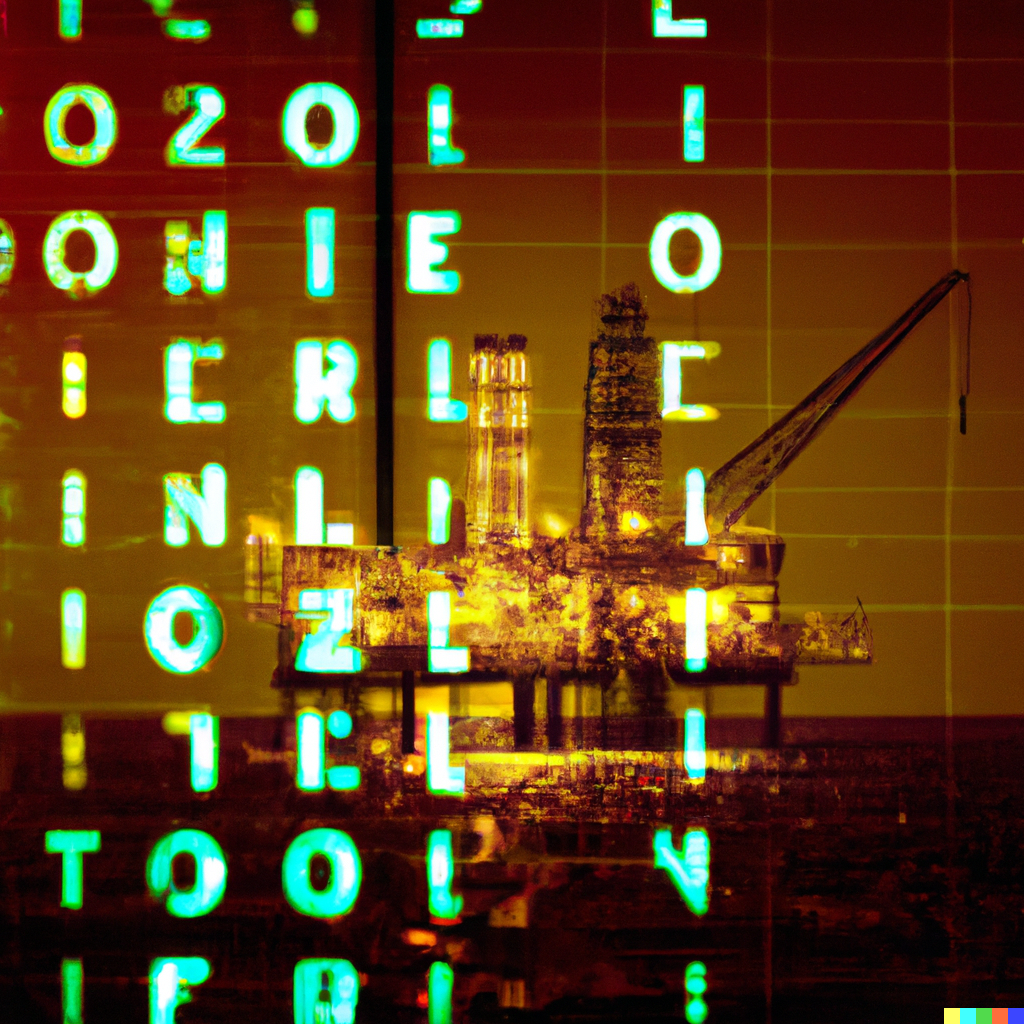After yet another summer of increased extreme weather events caused by the burning of fossil fuels, some of the world’s richest oil and gas companies are investing in artificial intelligence (AI) to speed up their extraction of new oil and gas.
Even by the conservative estimates of the International Energy Agency, the world cannot afford to drill into a single new fossil fuel development project if we want to limit the long-term increase in average global temperatures to 1.5˚. But the supermajors are currently investing in AI technologies that promise a faster and cheaper way to find new sources of oil and gas – algorithms that some researchers say could even increase the amount of fossil fuels a company can extract from a given project.

An AI generated image of an oil rig using OpenAI's DALLE-2
In May, oil giant Shell announced it will use generative AI to hasten oil and gas exploration as part of its broader strategy to “improve safety, efficiency, and sustainability across its operations”. AI solutions provider SparkCognition claim that the patented machine learning algorithm will achieve “potentially increased production and higher success rates”, and could find previously untouched fossil fuel resources in the ocean floor in as little as nine days instead of nine months.
For each new potential deep sea oil and gas field, the algorithm could rely on 1-3% of the traditional amount of seismic images to determine the likelihood of discovering fossil fuels worth drilling for, said SparkCognition’s chief science officer Bruce Porter in an interview.

An AI generated image of an oil rig using OpenAI's DALLE-2
Shell’s partnership with SparkCognition is hardly the first of its kind. TotalEnergies claims to have been using machine learning in 1990’s, and has announced a joint project with Google Cloud to develop deep learning applications. In 2019, BP’s venture capital outfit invested in an AI company whose algorithm was “expected to unlock critical data for our subsurface engineers at a much accelerated pace”. Similarly, ExxonMobil has a partnership with IBM in an “open-sourced, AI-driven process” that reportedly quickened its ability to design drill plans for new wells by two months, according to Emerj.
SparkCognition’s chief science officer has also stated that the technology the company is developing with Shell is “accentuating sustainability initiatives”, but did not specify how. A blog published over a month later on SparkCognition’s website specified that its generative AI could decrease “the probability of misplaced or wasteful drilling”, but did not go into further detail. Shell recently confirmed it plans to maintain its current oil output levels until 2030. SparkCognition’s technology can also be applied to onshore oil exploration companies. There is no mention on Shell’s website of how it will use the capital saved by the use of the technology, or whether it will be reallocated to the renewables parts of its business.

An AI generated image of an oil rig using OpenAI's DALLE-2
Asked about Shell’s sustainability claims, Dr Martin Blunt, a professor at the Department of Earth Science and Engineering at Imperial College London told Global Witness, “The technology itself is irrelevant to sustainability. It can potentially help companies understand what’s underground, and for Shell, this will principally enable them to drill for additional oil and gas reserves.”
In the midst of urgent global efforts to tackle climate breakdown, oil and gas companies are using AI to supercharge their fossil fuel extraction in a last ditch cash grab before oil and gas is consigned to the past. The UN estimates that fossil fuels account for 90 percent of the carbon emissions that are heating the planet and inflicting misery and loss on millions of people. Every new AI-assisted dig for more oil puts global efforts at keeping the climate within 1.5 degree limits in jeopardy, and represents a dangerous acceleration towards an uninhabitable world. The “digital drill” might promise efficiency for oil and gas companies, but at what cost to our planet and its population.


